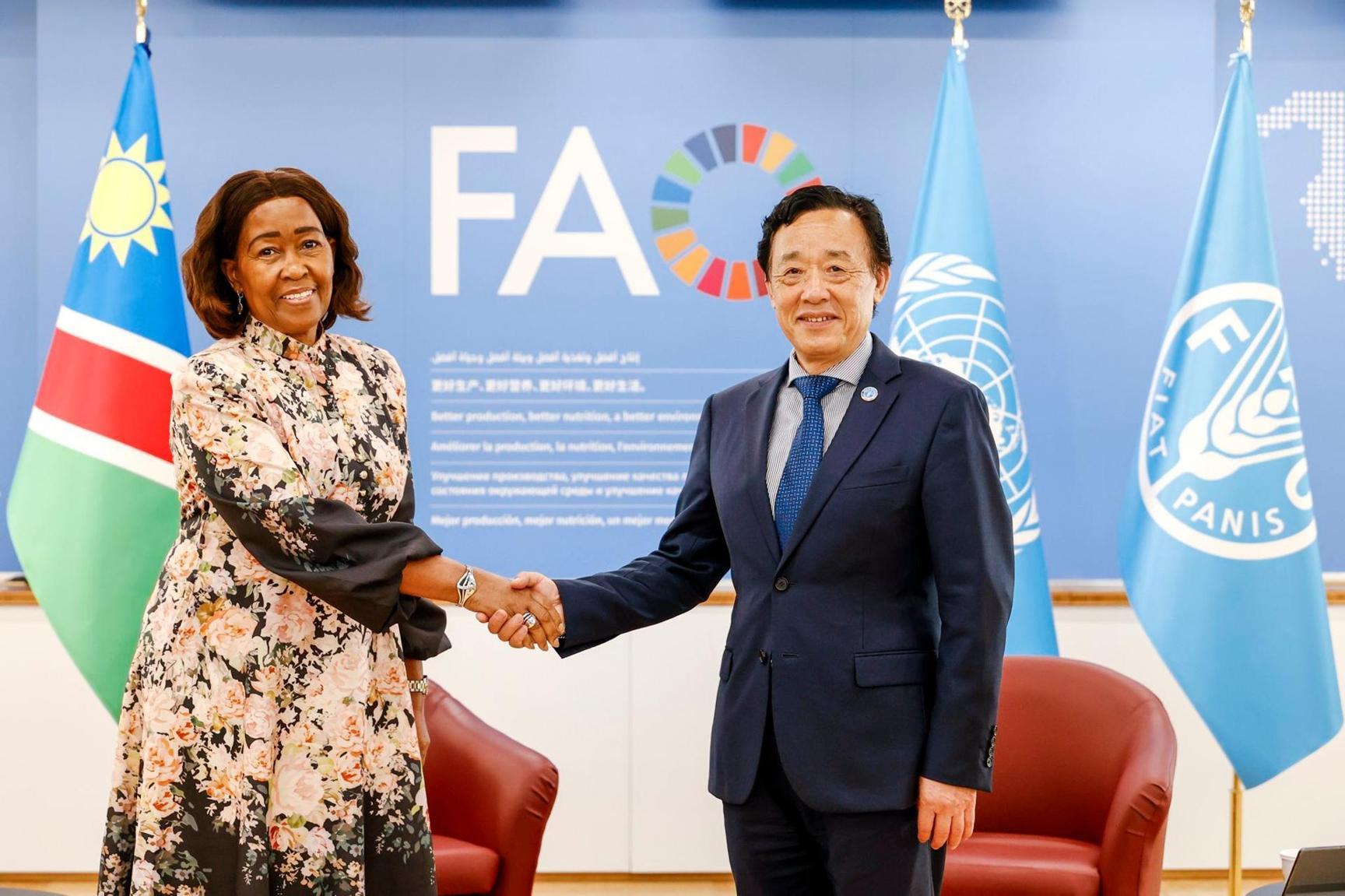Africa-Press – Namibia. Namibia has called on all Food and Agriculture Organisation (FAO) member states to implement the recommendations of the State of Food and Agriculture Report, localise the Pact for the Future, and prioritise improving food security while building more sustainable agri-food systems.
This call was made by the Minister of Agriculture, Water and Land Reform, Inge Zaamwani, during the 44th session of the FAO Conference held last week in Rome, Italy.
“Namibia’s agricultural landscape is characterised by a dual structure comprising both commercial and subsistence farming, with a predominant focus on crop and livestock production,” said Zaamwani.
She highlighted that livestock farming remains the backbone of Namibia’s agricultural sector, contributing approximately two-thirds of the sector’s share to GDP and playing a vital role in sustaining livelihoods. The Namibian government, she added, has prioritised agriculture as a key pillar of socio-economic development.
“We are committed to transforming the sector through diversification, shifting from rain-fed agriculture to irrigation-based systems, and investing in agro-processing, with a strong emphasis on sustainable innovation,” she said.
Pope Leo XIV, who also addressed the gathering, noted that while some progress has been made, global food security continues to decline, making it increasingly unlikely that the “Zero Hunger” goal under the 2030 Agenda will be achieved.
“There are people who suffer grievously and long for solutions to their many needs. We understand they cannot solve them by themselves. The continuing tragedy of widespread hunger and malnutrition, which persists in many countries today, is sadder and more shameful when we realise that, although the earth can produce enough food for all human beings, and despite international commitments to food security, it is unfortunate that so many of the world’s poor still lack their daily bread,” he said.
Pope Leo XIV added that food systems significantly influence climate change, and vice versa. He stressed that the social injustices caused by natural disasters and biodiversity loss must be addressed to achieve a just ecological transition — one that places both people and the environment at its core.
“Producing food is not enough; it is also essential to ensure that food systems are sustainable and provide healthy, affordable diets for all. It is therefore a matter of rethinking and renewing our food systems from a perspective of solidarity — overcoming the logic of unchecked exploitation of creation, and better guiding our efforts to cultivate and care for the environment and its resources, to ensure food security and achieve sufficient and healthy nutrition for all,” he stated.
The Director General of the FAO, Qu Dongyu, underscored the urgent need for innovation and creativity, as FAO members reached consensus on the Organisation’s Programme of Work and Budget for the 2026–2027 biennium.
“Let us not be defined by scarcity, but by our ingenuity, solidarity, and collective will. This is your organisation. You must champion food availability, food accessibility, food affordability, food diversity, and agrifood systems transformation as the foundation for stability and prosperity,” he urged.
Qu emphasised that resilience is built — not given — and highlighted that climate-adapted agriculture, sustainable fisheries, and empowered smallholders are critical investments in resilience.
“These are the foundations upon which food security and stable societies are built, even in turbulent times,” he said, adding that adaptation is the most crucial pathway to resilience.
For More News And Analysis About Namibia Follow Africa-Press






